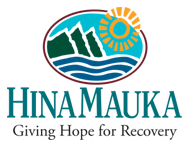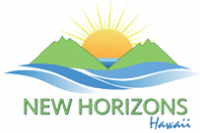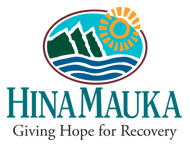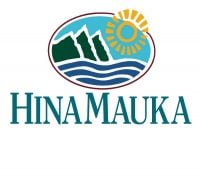Coalition for a Drug Free Hawaii - Leilehua High School
Drug Rehab Center in Wahiawa, Hawaii
Coalition for a Drug Free Hawaii - Leilehua High School in Wahiawa, Hawaii offers comprehensive substance abuse and addiction treatment services, including individual and group counseling, relapse prevention, community outreach programs, family support, psychiatric care, and holistic therapies, while being accredited by the Joint Commission and licensed through the Department of Health in Hawaii.
About Coalition for a Drug Free Hawaii - Leilehua High School in Hawaii
Coalition for a Drug-Free Hawaii - Leilehua High School is a non-profit rehab facility located in Wahiawa, Hawaii, specializing in the treatment of substance addiction. With a mission to provide comprehensive care and support for individuals on their journey to recovery, this facility offers a full continuum of services.
• Individualized treatment plans tailored to each patient's unique needs
• Evidence-based therapies including individual and group counseling
• Holistic approaches such as yoga, art, and mindfulness to support recovery
• Strong partnerships with local organizations for additional resources and support
Accredited by the Joint Commission and licensed through the Hawaii Department of Health, Coalition for a Drug-Free Hawaii - Leilehua High School is dedicated to delivering high-quality care. The facility has earned the Governor's Award of Excellence in Substance Abuse Services and is recognized as one of the top treatment centers in the state.
Coalition for a Drug-Free Hawaii - Leilehua High School treats a wide range of substance use disorders, including alcohol, opioid, and stimulant addictions. They offer various levels of care, such as residential treatment, outpatient programs, and aftercare services, to ensure that patients receive the appropriate level of support throughout their recovery journey.
Genders
Ages
Modality
Additional
Accreditations
State License
SAMHSA
Conditions and Issues Treated
A combination of treatments is often needed to treat drug abuse. Some addictions can be treated with counseling and support groups. In other cases, drug abuse can lead to a medical problem and require medical treatment. Treatment for drug addiction typically combines counseling and psychotherapy with medication and behavioral therapies.
A combination of treatments is often needed to treat drug abuse issues effectively. In the case of drug abuse, there is no easy answer or one-size-fits-all cure.
Opioid addiction has become a significant health problem in the United States. In 2015, there were 91 opioid overdose-related deaths per day, with a substantial increase in mortality rate in 2014.
When opioid addiction has reached a point where a person’s life becomes unmanageable, treatment options are available to help them get sober. Treatment that includes medical care with medications and counseling can help a user transition into sobriety.
Levels of Care Offered
This center offers a variety of custom treatment tailored to individual recovery. Currently available are Aftercare Support, Drug Rehab, Outpatient, with additional therapies available as listed below.
Outpatient treatment is often used for drug addicts in drug rehab. Outpatient treatment consists of counseling and therapy sessions. This form of treatment is also called ‘day-treatment’. The outpatient treatment process begins with the addict’s initial detox period, lasting about ten days.
Outpatient treatment is used for those who are at moderate risk for ‘slipping back’ into the addiction, for those who:
- Are not currently experiencing any side effects from withdrawal and can handle social pressure
- Can handle stressors that might trigger relapse
- Have a stable living environment or have moved out of their previous environment, which was not conducive to being sober
- Have a support system that allows them to go to a facility a few times a week while still keeping their current responsibilities
- Have no legal obligations, being either on parole or probation, that require them to seek treatment at a mandatory facility
- Are not currently experiencing any side effects from withdrawal and can handle social pressure
- Have a stable living environment or have moved out of their previous environment, which was not conducive to being sober
Completing a drug or alcohol rehab program is only the first step. Then comes aftercare support. These services include sober living accommodations, career counseling, and AA/NA programs for those struggling with sobriety or who want help maintaining it after initial rehab at an addiction facility.
They can last up to a year or more depending on what’s needed most urgently after the earlier stages are completed.
Therapies & Programs
Because no single treatment is effective for all addicts, the goal of treatment and therapy should be to figure out what works best for each individual. Tolerance and withdrawal levels differ from person to person, affecting the treatment intensity required. Addiction treatment should aim to help addicts develop healthy coping mechanisms for dealing with their addiction and its underlying causes.
Couples therapy works with clients and significant others in a professional capacity to improve relationship dynamics. This can be helpful for addicts who are trying to marry the idea of recovery into their work, family, social lives – any aspect that has to do with relationships. Through counseling sessions, addicts will have an opportunity to talk about their addiction with professional partners.
Family therapy is beneficial for people who are in addiction treatment services because it offers addicts the opportunity to work with their family members to better understand what led them to make choices that contributed to their addiction.
This type of therapy helps family members reach a deeper understanding of how they can best support their loved one during recovery. It also helps the addict better understand their own motivations and triggers that led them to turn to substance abuse.
Family therapy can help addicts in the following ways:
- Assists family members in processing difficult feelings so they don’t blame or resent recovering addicts
- Assists family members in understanding how addiction has impacted the addict and everyone who is involved with them
- Allows the addict to take responsibility for their actions, while encouraging improved communication skills
- Helps family members understand how to best support an individual in recovery so addicts don’t relapse again.
Group therapy can help build a stronger support system and give addicts in Wahiawa, HI insight into their addiction that they gain through shared conversations. Group therapy occurs in a controlled group environment, exclusive of one on one meetings. This makes it safer for patients to feel comfortable sharing the struggles they’re going through and gaining perspective.
Trauma therapy is beneficial for people who are recovering from drug addiction because it helps them heal from past traumas that may have caused them to turn to harmful substances or led them to experience negative emotions that contributed to their destructive behaviors.
This type of treatment works by processing difficult experiences so individuals can learn how to process these events without having to turn to substances for coping.
Trauma therapy can help addicts in the following ways:
- Helps individuals understand their experiences and emotional responses to difficult events, including why they turned to drugs or alcohol
- Provides them with comfort and support while working through difficult emotions related to these traumatic experiences
- Offers an opportunity for addicts to have a voice and be heard, which can improve their self-esteem
- Can help them develop coping skills so they can better respond to triggers instead of turning to substance abuse.
Dialectical Behavior Therapy (DBT) is a cognitive-behavioral therapy that helps patients understand the relationship between their thoughts, feelings, and behaviors. It is beneficial for those whose addictions and behaviors stem from severe mental health issues. The term “Dialectic” means the integration of opposites. In substance abuse, DBT refers to accepting the patient’s addiction and working to change their thoughts and behavior. It improves life skills such as controlling intense emotions without reacting impulsively, resolving interpersonal conflicts effectively, and promoting awareness about self and others.
Cognitive-behavioral therapy is a technique that is used to help people with addiction. Specifically, it is a way of identifying thoughts and behaviors that cause the addiction. It is typically used in an individual counseling session.
The content explains cognitive behavioral therapy and how it works to address some behaviors that may be leading to unintended consequences in their life, as well as its benefits for those seeking sobriety.
It works by helping people to talk through their issues and addressing the thoughts that cause said behaviors. It is an excellent way of learning about oneself and one’s perception of the world.
Additional Details
Specifics, location, and helpful extra information.
Wahiawa, Hawaii 96786 Phone Number(808) 545-3228 Meta DetailsUpdated April 15, 2024
Staff Verified
Coalition for a Drug Free Hawaii - Leilehua High School Patient Reviews
There are no reviews yet. Be the first one to write one.
Wahiawa, Hawaii Addiction Information
Hawaii has one of the highest rates of drug abuse in the nation. Methamphetamines and marijuana are the most common drugs involved in drug-related crimes in Hawaii. The state loses $500 million every year due to methamphetamine abuse, according to the Hawaii Meth Project. More than 1 million prescriptions for prescription drugs are given out every year.
The Wahiawa, Hawaii drug addiction problem is unfortunately quite severe. According to the National Institute on Drug Abuse, in 2016, over 9% of Wahiawa residents reported using illicit drugs in the past month, and over 17% reported binge drinking. This indicates a serious need for drug rehab services in Wahiawa. Most drug rehab centers in Wahiawa, Hawaii, offer a combination of therapies and counseling.
Treatment in Nearby Cities
- Kailua Kona, HI (183.1 mi.)
- Waikoloa, HI (179.7 mi.)
- Kapolei, HI (11.7 mi.)
- Kahuku, HI (13.1 mi.)
- Kailua, HI (18.7 mi.)
Centers near Coalition for a Drug Free Hawaii - Leilehua High School
The facility name, logo and brand are the property and registered trademarks of Coalition for a Drug Free Hawaii - Leilehua High School, and are being used for identification and informational purposes only. Use of these names, logos and brands shall not imply endorsement. RehabNow.org is not affiliated with or sponsored by Coalition for a Drug Free Hawaii - Leilehua High School.








